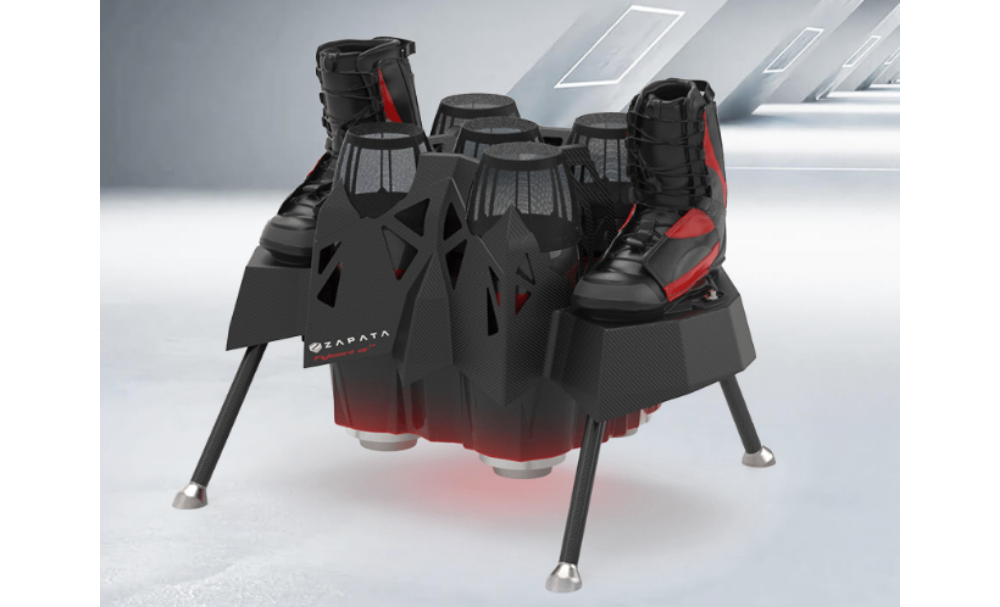For more than five years, Zapata Industries, a company founded by Franky Zapata, a former world jet ski champion, has been promoting his ‘Flyboard Air’ to the armed forces.
It is a platform which, equipped with five motors allows you to fly at an altitude of 3,000 metres, thanks to an algorithm, which adjusts in permanently the inclination of the engines and the speed of the lateral turbines.
It has a projected speed of 200 KM/H with a flight time of 10 minutes and a maximum carrying capacity of 120 KG.
After almost coming under American control, Zapata Industries received support from the Ministry of the Armed Forces in 2018, via the Defense Innovation Agency [AID]. A budget of 1.3 million euros was allocated to it to enable it to improve its “Flyboard Air” and adapt it to the constraints of military operations. As such, it received support from the Poly-shape company and the National Office for Aerospace Studies and Research [ONERA].
Indeed, the potential offered by the “Flyboard Air” very early on interested the Special Operations Command [COS]. Such a device would make it possible, for example, to carry out reconnaissance, to carry out infiltration / exfiltration missions, to serve as a flying logistics platform, to reduce the intervention time of a patrol, or even to be used as an assault vehicle.
However, even if it was promising [especially after crossing the Channel by Franky Zapata], the Flyboard Air could not, as it was, be used for military purposes. In question? Its lack of discretion and its consumption – considered excessive – of fuel [200 liters of kerosene per 100 km…]. Difficult, in these conditions, to consider placing a commando on a flying surfboard with 40 liters of fuel in a backpack.
Zapata Industries has since made the requested changes. This is indeed what Florence Parly, the Minister of the Armed Forces, announced during the 2021 Defense Innovation Forum [FID].
“The first FID was an opportunity to highlight a project that might seem crazy, that of Franky Zapata’s Flyboard. If AID took an interest in this project, it is because other nations are experimenting with this new form of ‘hyper-mobility’ and because our special forces could find applications in it in the future ”,
recalled Mrs. Parly.
Anyway, according to the minister, the work carried out for three years has therefore made it possible
“to improve the acoustic discretion, the autonomy of the Flyboard and to optimize the mass of its engine”. And to add: “Soon, the special forces will experiment an individual flying platform, piloted, derived from the Flyboard-R, leaving the pilot free of his feet and his hands. I am waiting to see that ”.
And she’s not the only one…
Source: zone militaire

